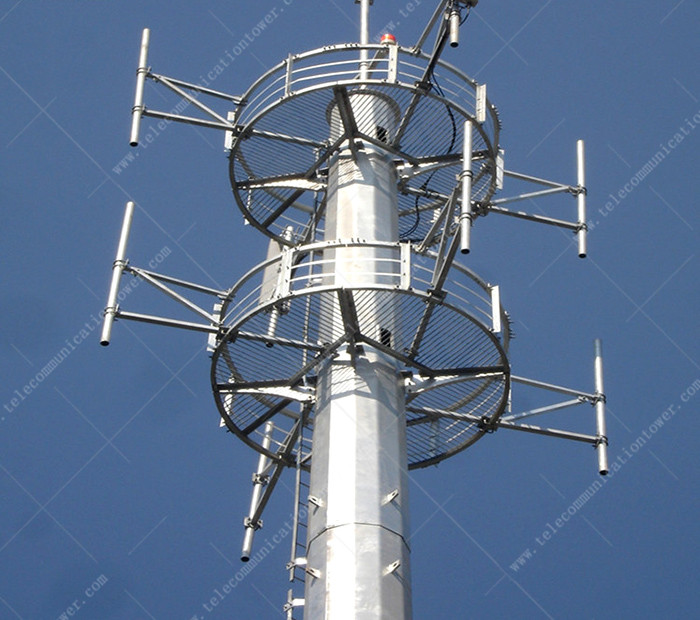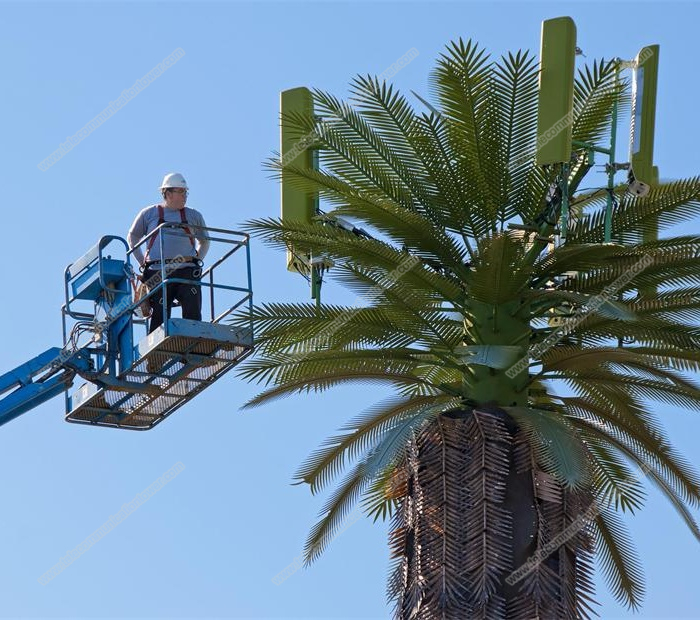
Heavy Duty Wifi Telecommunication Steel Monopole Antenna Tower
A cell tower, also known as a cellular base station, is a place where electrical communication equipment and antennas are installed to allow wireless communication devices such as phones and radios to be used in the surrounding area. Cell towers are usually built by tower companies or wireless carriers when they expand the coverage or capacity of their networks, thus providing better reception in the area. Cell towers are largely located throughout the United States, where there are currently over 307,000 towers. They can sometimes be found on top of buildings.
In this article, JIAYAO aims to give you more information about cell towers and how they work. We also want to address the growing concerns about 5G and dispel the rumours.
There are over 300 million mobile phones in use every day in the United States. Whenever a mobile phone is used, it emits an electromagnetic radio wave called a radio frequency, which is picked up by the antenna of the nearest cell tower.
Once the tower picks up that signal, it transmits it to the exchange. This allows the call to be connected to another mobile phone or telephone network. It's crazy to think that all this happens in just a few seconds.
The first type is known as a lattice tower. Also known as a self-supporting tower, this type of tower offers incredible flexibility. It usually has three or four sides and a similarly shaped bottom.
The second type of tower is the monopole tower. This type of tower has a single steel or concrete tube tower, usually under 50 metres. It requires only one foundation. The antenna is connected to the outside.
The third type is the wire pull tower, which is cost effective but requires a larger amount of land. It is usually built at 100 metres or more, with tie wires attached to anchor and support it. They are attached to the ground in all directions. Most radio and television towers are wire pulling towers.
The fourth type is the stealth tower, these are more expensive than the other three options but are designed to beautify the community they are in. For example, the bionic tree tower. They require additional materials to help them hide in plain sight. Although more attractive, they do not usually provide the same amount of capacity for the tenant.

Jiayao telecommunication Bionic Tree tower
The super-fast technology of mobile phone towers is down to their components. In this section, you will hear us refer to cellular operators a lot. This is because many parts of a cellular tower are provided by a separate cellular operator, also known as a wireless network.
The equipment on a signal tower includes the transceiver and other supporting technology. They are installed in cabinets or shelters or any other means chosen by the wireless operator to protect them. Some even create outdoor cabinets on concrete pads or prefabricated equipment shelters.
There are multiple antennas attached to cell towers, usually mounted on headers. Some towers even have up to 15 antennas per carrier. This number actually depends on the performance, coverage and capacity requirements of the antennas.
Operators will also install utilities at the cell tower sites. Each operator has the right to run to the site as well as telephone services. Each cell tower will also require operator access for initial installation and ongoing maintenance.
The above section helps determine the distance between the cell tower and the cellular phone while still receiving its signal. This distance is determined by the connection technology, landscape features (hills, trees and buildings), the power of the tower transmitter, the size of the cellular network and the design capacity of the network.
Interestingly, cell towers sometimes deliberately set their transmitters to a lower power to ensure that it does not interfere with neighbouring cells. But even taking all these factors into account, a typical cell tower can still provide service from up to 45 miles away. This is quite impressive.
Now if you have the plan of installing a telecommunication tower, please contact our experts to get help. Also you can check the article about reducing installation costs.